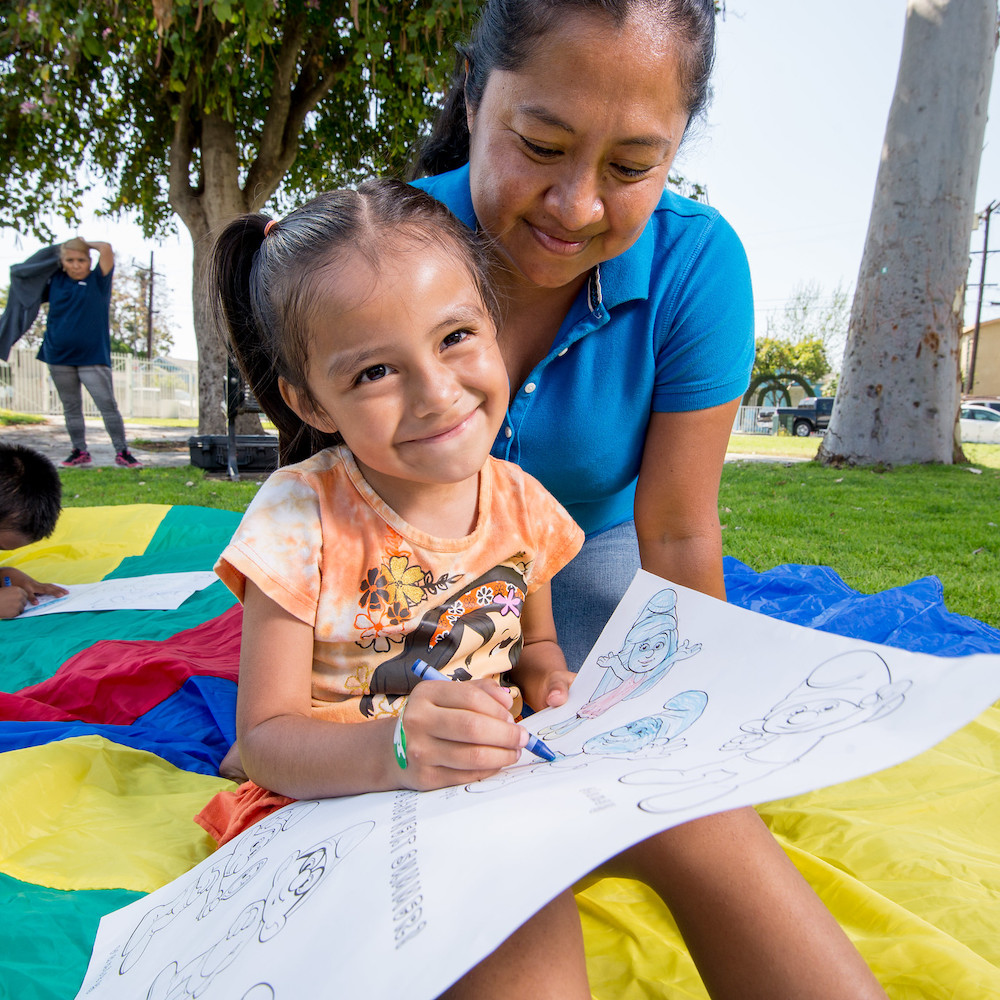On May 14, Governor Gavin Newsom unveiled his May Revision to the state budget. Dubbed the “California Comeback Plan,” Newsom’s proposal features total spending of $267.8 billion, a more than $40 billion spending increase from his January proposal, and a record surplus that positions California’s economy and society to emerge from the pandemic stronger, more equitable and better able to help children and families thrive.
Early in the COVID-19 pandemic, state officials predicted a devastating and long-lasting recession, forecasting a $54 billion budget deficit for the coming fiscal year. Now, 14 months after the initial COVID-related economic shutdown and in a major reversal from the most dire forecasts, the May Revise features a record state budget surplus of $75.7 billion, resulting primarily from the stock market’s strengthening and greater-than-expected income tax revenues from high-income earners. Additionally, California received $27 billion in federal resources through the American Rescue Plan, leaving the state with approximately $100 billion in previously unexpected revenue.
The proposed spending in this Revise is largely unprecedented and unlikely to occur again soon, particularly due to both the infusion of one-time federal funding and the prediction of state budget deficits starting by fiscal year 2024. As a result, after more than a year of significant challenge and hardship, California has a once-in-a-generation opportunity to build more effective systems, invest in families, and support the state’s youngest children.
Overall, the May Revise spends heavily on COVID-19 relief and recovery, featuring a mix of one-time and ongoing investments in the state’s human capital and human infrastructure, critical to strengthening California’s society and economy going forward. Strengthening such infrastructures, including First 5 LA priority systems of early learning and health, among others, is essential to helping families and kids recover from the impact of the pandemic as well as building stronger systems of support in the long term.
State law requires that a portion of any surplus goes directly to various state reserve accounts, as well as the K-12 education system. In pursuance of this mandate, the May Revise would build state reserves by $24.4 billion, including $15.9 billion for the Rainy Day Fund and $450 million for the Safety Net Reserve, among other accounts. Following these transfers, Newsom has proposed spending much of the remaining windfall revenue on COVID-19 response and recovery, including direct, immediate relief for families and longer-term investments in the state’s human infrastructure. These include:
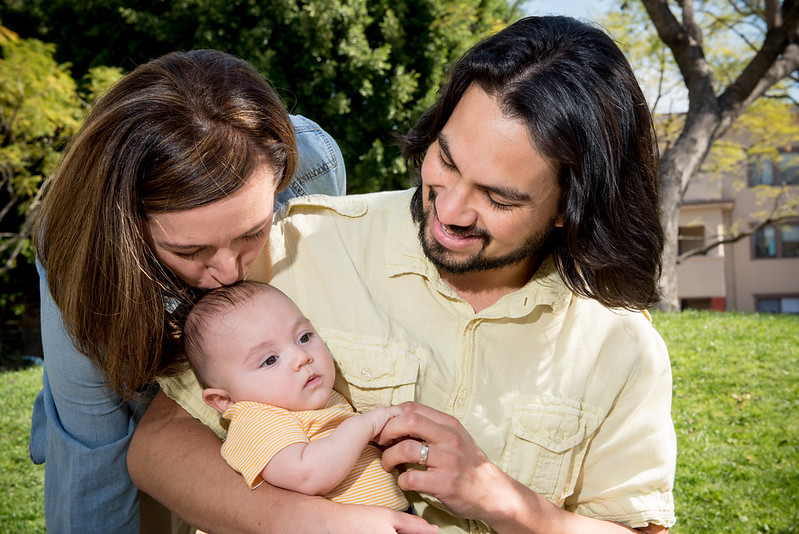
- Immediate Relief for Families: California has already provided millions of low-income residents with financial assistance through the Golden State Stimulus (GSS) program. Now, at a cost of nearly $12 billion within the May Revise, households earning up to $75,000/year that did not receive a payment through the GSS program earlier this year would receive $600 checks. The Revise would also provide an additional $500 to families with young children, as well as $500 to anyone who utilizes an Individual Taxpayer Identification Number (ITIN). ITIN filers, often undocumented residents, can receive both the ITIN stimulus and child-related payment in addition to $600 through the GSS. This offers some redress and much-needed support to California’s undocumented families, who federal lawmakers specifically barred from receiving stimulus checks through COVID relief legislation.
- Early Learning infrastructure: The COVID-19 pandemic has significantly amplified the importance of critical child care infrastructure and services, demonstrating the need to ensure essential frontline workers can have their children in safe and healthy environments while they serve our communities. For the state to get back to work, families must have access to affordable, available and high-quality early care and education (ECE) resources, and providers must receive fair compensation for their work. In response to the pandemic’s effects on the ECE field, and in order to build a more equitable and accessible system for the future, Newsom’s May Revise proposes to significantly invest in subsidized child care seats, expand transitional kindergarten to all 4-year-olds, and waive family fees for eligible families, among other early learning-related items.
- Health Systems infrastructure: The pandemic has exposed the need for significant investment in the wraparound supportive services and systems that strengthen families. The May Revise proposes spending on both short- and long-term health infrastructure needs in the state, with over $1 billion towards direct COVID-19 response costs, including testing, laboratory operations, vaccinations, medical surge capacities and contact tracing efforts. The budget would also fund structural reforms in the Medi-Cal system; provide additional developmental services for young children; promote the economic security of families; and permanently enact certain health care flexibilities that would otherwise end following the conclusion of the Public Health Emergency related to COVID-19.
Finally, the May Revise lays out a plan for spending the nearly $27 billion in federal American Rescue Plan funds that California will receive in two tranches over the next year. This includes:
- $4.9 billion to support the state’s public health infrastructure, public hospitals, health systems and residential care facilities, as well as to address the emotional and behavioral health impacts of quarantining and distance learning requirements.
- $13.7 billion to address the pandemic’s negative economic impacts through funds that offer water and utility bill assistance, address housing shortages and homelessness, provide grants to small businesses, promote tourism, and stimulate job growth. This proposal also includes $2 billion to create $500 college savings accounts for low-income first graders, seeking to address equity gaps in education and increase opportunities for higher education.
- $7.3 billion to maintain water and sewage systems and promote broadband access and affordability.
- $1.1 billion to build up the state’s Unemployment Insurance Trust Fund and replenish the state’s unemployment compensation system after unprecedented demand on the system throughout the pandemic.
Key highlights of Newsom’s 2021-2022 May Revise Budget Proposal related to First 5 LA’s priorities include:
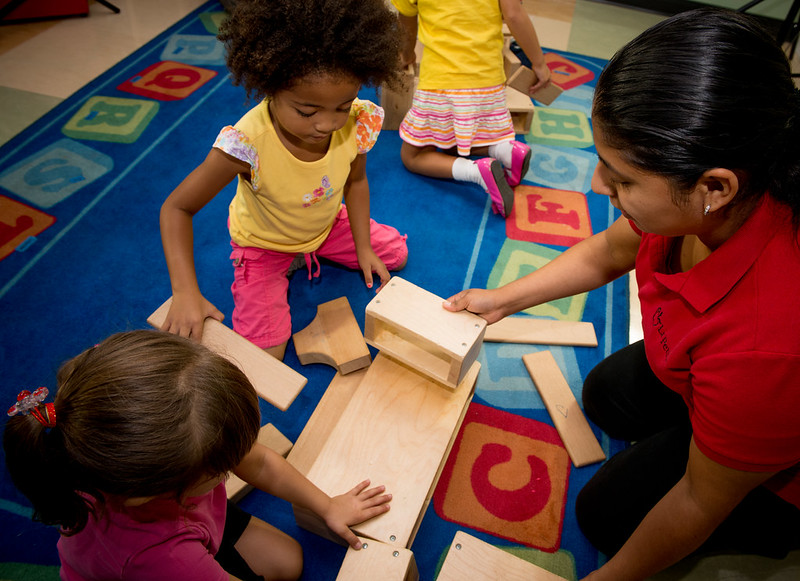
Children have high quality early care and education experiences before kindergarten.
Newsom’s May Revise budget proposal includes:
- Funding to establish universal transitional kindergarten (TK) by 2024-2025: Aligned with the goals of the Master Plan for Early Learning, Newsom has proposed to create a “14th grade” of public education by allocating $250 million in one-time Proposition 98 funds for planning and implementation grants for local educational agencies, as well as $380 million to reduce staff ratios by providing one additional certificated or classified staff person in each TK classroom. Newsom’s January budget proposed $250 million for incentive funds for school districts to expand TK, but the Revise now gears funding toward implementation grants. In total, Newsom anticipates spending approximately $900 million General Fund in 2022-23 to begin this phase-in approach to universal TK, growing to $2.7 billion in 2024-2025.
- $10 million one-time General Fund for the Department of Education to update the Preschool Learning Foundations guide, the recommended learning standards for preschool and TK, to reflect the most recent research on early childhood development and providing comprehensive resources for pre-kindergarten teachers.
- $579 million in one-time federal Coronavirus Response and Relief Supplemental Appropriations (CRRSA) funds. Over the last year, federal funds have supported families and providers through the pandemic. CRRSA funds will continue to provide those supports, including continue to provide those supports, including family fee waivers for eligible families and continued hold harmless funding for providers through June 30, 2022; $25 million; $25 million to expand the Child Care Initiative Project and target child care deserts; one-time stipends (between $3,500-$6,000) to licensed providers based on licensing capacity; a third round of per-child stipends for subsidized child care and preschool providers; and 16 non-operational days to providers accepting vouchers and who have closed through June 2022.
CRRSA one-time funds also include $10.6 million for early childhood mental health consultations through expansion of the California Inclusion and Behavior Consultation, aimed at supporting programs and providers seeking to address the learning and development of young children.
- $83 million ongoing to fund 6,500 new child care spaces. The $83 million reflects updated Proposition 64 cannabis tax revenues, which is an increase from $215 million outlined in Newsom’s January budget. The May Revise also plans to add an additional 100,000 subsidized child care spaces.
- $20 million for a multi-year effort to strengthen existing quality improvement supports and systems focused on addressing inequities. Part of this effort will include a stakeholder engagement process coordinated by the California Department of Social Services in order to inform policy-setting and program design.
- Several items supporting the transition of child care programs to the California Department of Social Services (DSS). Effective July 1, 2021, all child care programs, except the California State Preschool Program (CSPP), will transfer from the California Department of Education (CDE) to DSS. To facilitate this transfer, the May Revise proposal includes a shift of $31.7 million ($0.9 million General Fund) and 185.7 positions from the DCE to DSS to administer early learning, child care and nutrition programs; $3 billion ($1.5 billion General Fund) to support the shifting of programs; $4.8 million to support the development of a child care data system, including necessary planning and initial implementation; and $6 million to modernize payment options for child care contractors to be able to be reimbursed via direct deposit.
- $250 million in one-time federal American Rescue Plan funds, to be spent through September 30, 2024, to provide infrastructure grants for child care facilities. To serve families who need but lack access to child care, the funds will focus on the acquisition, construction, development, and renovation of facilities, prioritizing current child care deserts.
- $10 million in one-time federal American Rescue Plan funds for Resource and Referral agencies that have supported child care providers and have served as intermediaries to develop new child care facilities and capacity, as well as to streamline and improve data collection processes.
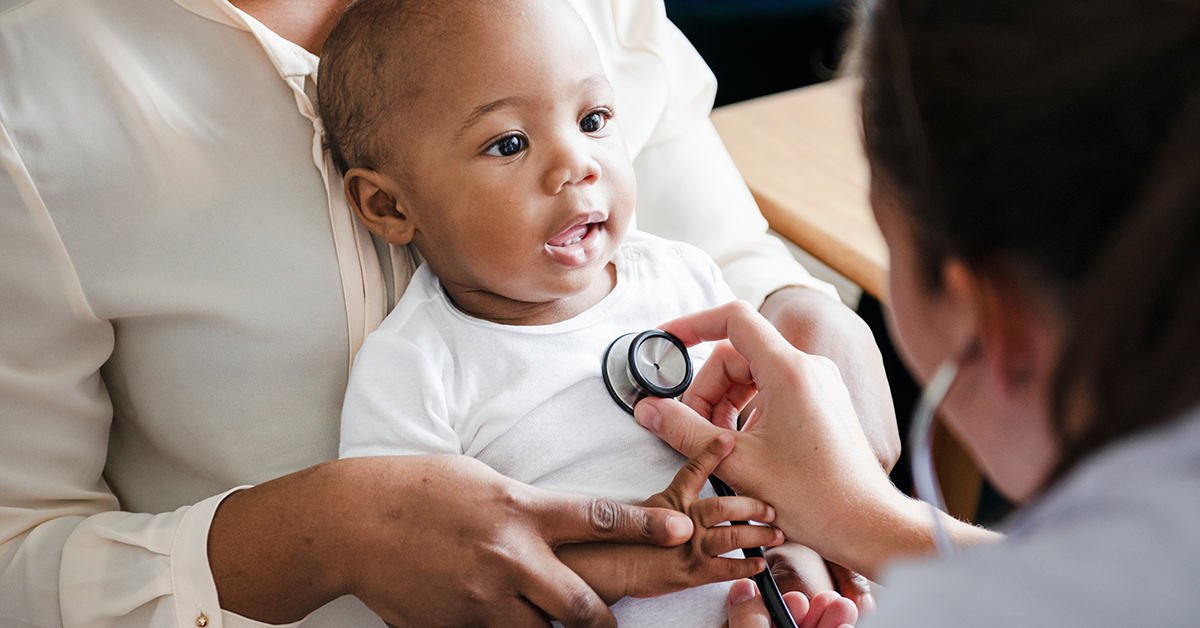
Children receive early developmental supports and services, and are safe from abuse, neglect, and other trauma.
Newsom’s May Revise budget proposal includes:
- $200 million in total funds ($100 million General Fund) ongoing to provide dyadic care services through Medi-Cal. This new benefit would provide integrated physical and behavioral health screening and services to the whole family, a model that has been shown to increase access to preventive care and rates of immunizations for children; improve the coordination of care and maternal mental health; and strengthen child social-emotional health and safety.
- $550 million ongoing to permanently eliminate the previously proposed suspension of Proposition 56 supplemental payment increases. Newsom’s January budget proposed only to delay the suspension of Proposition 56 programs by 12 months, after the final 2020 state budget called for most Proposition 56 programs to sunset effective July 1, 2021. Proposition 56 funding supports incentive payments for conducting development screens and screenings for Adverse Childhood Experiences (ACEs), for example.
- $12.4 million one-time General Fund to support seven demonstration projects focused on advancing research on and developing scalable approaches for treating and preventing ACEs; these include efforts to strengthen workforce training and to broaden the network of clinicians and providers equipped to treat and prevent toxic stress.
- $122.4 million one-time General Fund in 2021-2022, for disbursement over three years, to implement Family First Prevention Services Act (FFPSA) preventative services for youth and families at-risk of entering the foster care system. This represents a significant increase from the $61.1 million ($42.7 million General Fund) Newsom proposed in January for these purposes.
- $3.7 million one-time ($2.5 million General Fund) to support efforts toward establishing a Regional Center performance improvement program, including fiscal incentives to meet specified benchmarks.
- Allowing Medi-Cal reimbursement for audio-only telehealth visits at 65 percent of the Medi-Cal rate for the service rendered in fee-for-services. Receiving this reimbursement would be contingent on being able to provide in-person services to each Medi-Cal enrollee served by audio-only telehealth as well. During the COVID-19 pandemic, the Department of Health Care Services (DHCS) allowed for payment parity between audio-only and virtual telehealth visits, but the administration is now recommending that to end. Telehealth has been critical during the COVID-19 pandemic, allowing families to receive necessary care while limiting physical interactions between patient and provider. However, there remain important services that pediatricians cannot provide virtually, such as components of certain developmental screens and childhood vaccinations. As such, policies that grow a hybrid system, allowing for enhanced utilization of telehealth while ensuring families always have access to in-person care, are crucial.
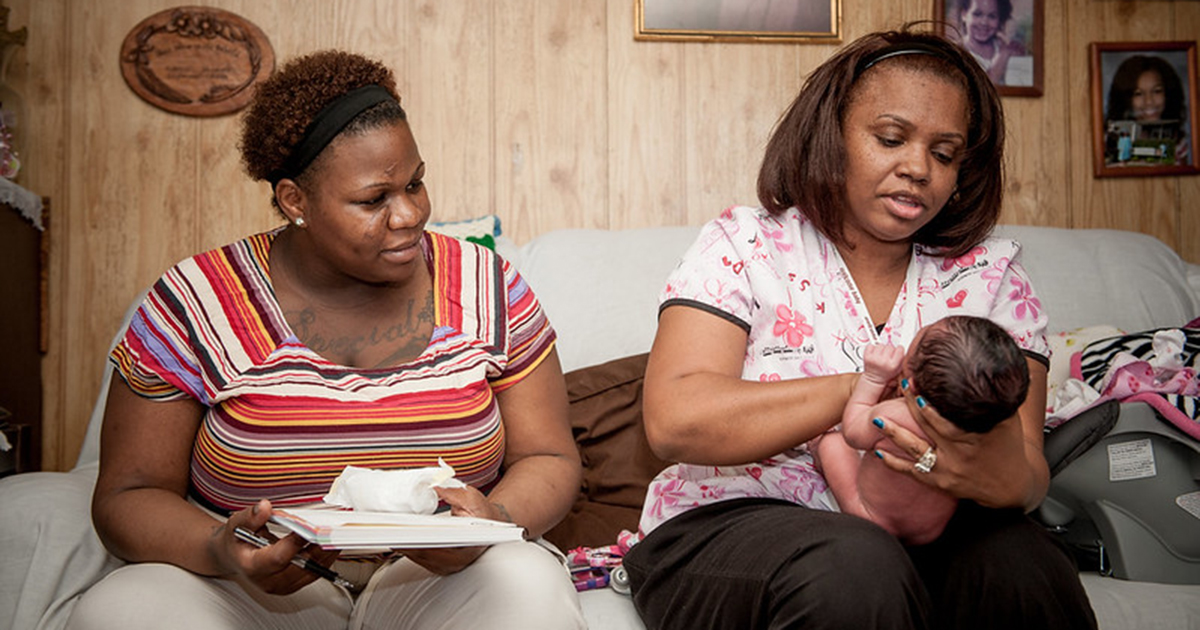
Families optimize their child’s development.
Newsom’s May Revise budget proposal includes:
- $90.5 million (45.3 million General Fund) in 2021-2022 and $362.2 million ($181.1 million General Fund) annually between 2022-2023 and 2027-2028 to extend Medi-Cal eligibly for postpartum individuals from 60 days to 12-months. Continuous health care coverage is essential for avoiding disruptions in care, particularly as one-third of all maternal deaths occur one week to one year after a pregnancy ends, and one in seven women experience symptoms of postpartum depression in the year after giving birth. The ability to provide additional postpartum benefits became allowable through the American Rescue Plan.
- $35 million General Fund over five years to fund a Universal Basic Income pilot, administered at the city or county level and requiring a local-match commitment. The program would look particularly to direct benefits to low-income Californians. The First 5 LA 2021 Policy Agenda includes family economic security as a new priority, and First 5 LA has regularly advocated that pregnant and postpartum individuals on Medi-Cal receive basic income supports.
- $403,000 ($152,000 General Fund) in 2021-2022 and $4.4 million ($1.7 million General Fund) annually to add Doula services as a covered benefit in the Medi-Cal program, effective January 1, 2022. $16.3 million ($6.2 million General Fund) and $201 million ($76 million General Fund) annually by 2026-2027 to add Community Health Workers to the class of health workers who are able to provide benefits and services to Medi-Cal beneficiaries effective January 1, 2022. These providers are important to making language- and culturally-appropriate care available to families served by Medi-Cal, and First 5 LA advocacy has regularly promoted the need for greater family access to them.
- $1.2 million in federal Individuals with Disabilities Education Act (IDEA) funds to improve coordination between Regional Centers and Local Educational Agencies (LEAs) to support transitions between IDEA Part C and Part B programs. Funds would also support convening a stakeholder workgroup to address data sharing and disseminate best practices. Children up to the age of 3 receive early intervention services at regional centers through IDEA Part C, and following their third birthday, transition to preschool special education services through IDEA Part B. However, children can often fall through the cracks during the handoff between regional centers and LEAs. For instance, regional centers may fail to notify the receiving school district at least 90 days prior to the child’s third birthday that a transition is impending, and the state’s bifurcated service delivery system can lead to communication barriers and coordination difficulties between the two lead entities. First 5 LA advocacy has elevated these concerns to the relevant agencies and departments and called for greater guidance and funding to facilitate successful transitions.
- $1.6 billion total funds ($673 million General Fund) in 2021-2022 and $1.5 billion total ($746.6 million General Fund) in 2022-2023 to implement California Advancing and Innovating Medi-Cal (CalAIM) reforms. First 5 LA will continue to encourage DHCS to better incorporate the needs the needs of children and families into CalAIM. This includes making children prenatal to age 5, as well as pregnant and postpartum individuals, a target population for Enhanced Care Management through CalAIM, and adding home visitation as a required In-Lieu of Services benefit.
- $142.9 million in 2021-2022 to fund a 5.3 percent increase in the maximum level of CalWORKs cash grants. This builds upon Newsom’s January budget proposal to increase maximum grants by 1.5 percent at a cost of $50.1 million. As such, the Revise’s proposal would more strongly support family economic security, a new First 5 LA policy priority in the 2021 Policy Agenda. Economic stability and empowerment are important components within the Whole Child and Whole Family framework as well.
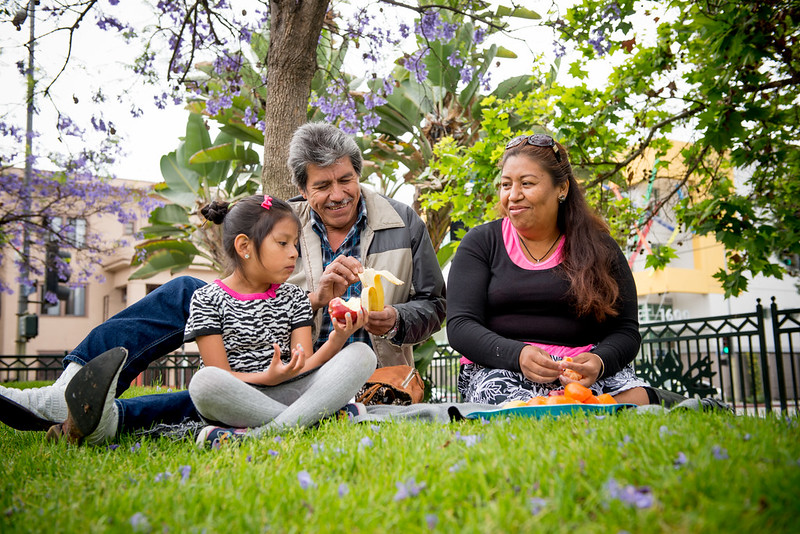
Priorities aligned with First 5 LA’s long-term systems outcomes, L.A. County regional priorities, and Best Start Community Change agendas.
Newsom’s May Revise budget proposal includes:
- $280 million total for school nutrition programs and infrastructure, in response to food insecurities exacerbated by the COVID-19 pandemic. $30 million General Fund would fund the Farm to School program, which helps expand healthy food access in schools, and $100 million in one-time Proposition 98 funding would provide school kitchen infrastructure upgrades and training for school cafeteria staff. Finally, $150 million ongoing Proposition 98 to encourage school districts to participate in one of the federal universal meal provisions.
- $105.2 million General Fund, or an increase of $100 million from the January budget proposal, to continue a Rapid Response Program at the California Department of Developmental Services. This supports community-based and nonprofit organizations addressing the emergent needs of California immigrants. An additional $25 million in General Fund and Proposition 98 funding will provide support for Undocumented Unaccompanied Minors (UUM) through the Opportunities for Youth pilot project, legal services, state operations for the programs, and the California Newcomer Education and Well-Being program.
- $6.8 billion to address a broader portfolio of housing supports to help end homelessness in California, including $2.75 billion over a period of two years for additional acquisition and rehabilitation of facilities through Project Homekey. Of that, $1 billion is intended for families experiencing homelessness or who are at risk of becoming homeless. An additional $5.2 billion in federal funds would support rental and utility assistance. Homelessness and housing affordability continue to be a critical priority for the local communities that First 5 LA partners with, and greater state and federal resources will help ensure that county and city leaders have the resources necessary to promote housing stability, especially for homeless or housing insecure families.
- $322.4 million to continue residential environmental cleanup in response to the Exide Battery factory contamination. To date, the state has provided over $251 million for residential and other associated costs related to Exide. Addressing environmental hazards is a priority of several Best Start Communities.
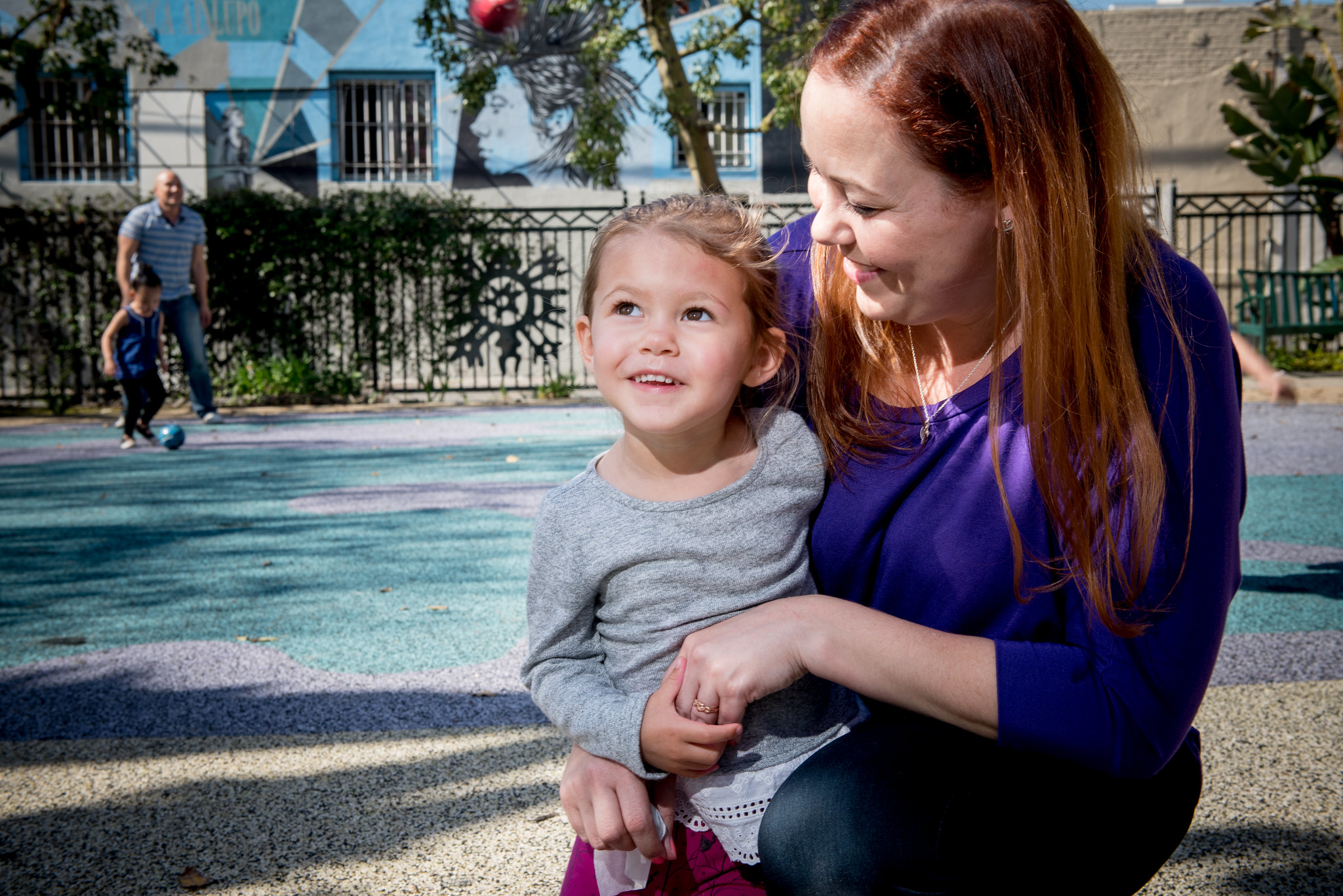
BUDGET PROCESS – NEXT STEPS
The May Revise is the second step in the state’s budgetary process, and it reflects updated revenue and policy forecasts that have emerged since Newsom released his initial budget proposal in January. The Legislature, led by its budget committees and subcommittees, will now draft and finalize Trailer Bill Language that serves as the final step in negotiations between lawmakers and the administration. The Legislature must pass its budget bills by June 15, which is also the same day California will end most pandemic-related restrictions and move into a broader phase of economic reopening. Finally, Newsom must sign the state’s finalized 2021-2022 budget by June 30.
SUMMARY
With rising COVID-19 vaccination rates and the Newsom administration’s plans to broadly reopen the state in mid-June, California appears to be entering a new and more hopeful phase of the pandemic. However, even with the direct public health threats of COVID-19 reduced, families will still face difficulties stemming from a year of significant trauma; heightened economic, housing and food insecurities; and social isolation during stay-at-home orders. As such, policymakers must ensure the state’s path forward includes universally targeted and ongoing supports for families, particularly in the most impacted communities of color. People of color have not only experienced higher rates of infection, hospitalization and death from the virus itself but also disproportionately faced the economic disruptions, housing insecurities and mental health concerns that the pandemic has caused. First 5 LA will continue to focus its advocacy on ensuring policymakers robustly support the essential infrastructure necessary to strengthen the Whole Child and Whole Family.
Now is the moment to bring down existing barriers to care, both because the need for supports is and will remain high and because California has the budgetary flexibility and federal investments necessary to meaningfully bolster and accelerate improvement in our family supporting systems. Policy and systems changes necessary to strengthen L.A. County families have never been more urgent; the May Revise demonstrates an understanding of the imperative of supporting families during these challenging times and beyond. However, as more sectors of the economy reopen, the state could have even more revenue to spend by June when Newsom must sign a finalized budget.
